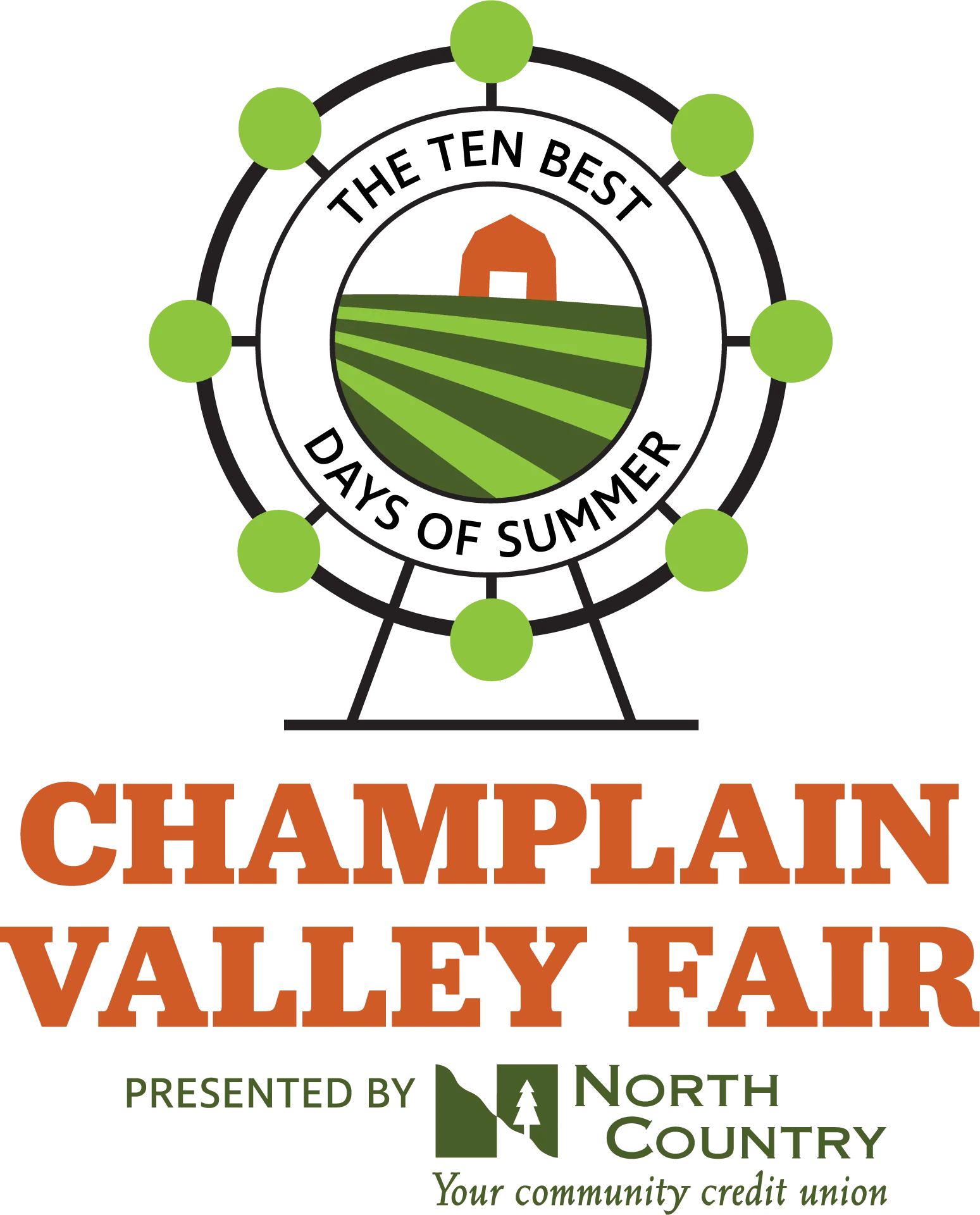About The Champlain Valley Fair
The Champlain Valley Fair is part of the Champlain Valley Exposition, a not-for profit organization founded in 1922.
The first Fair opened as the Essex Fair in Essex Center. It grew so quickly over it’s first few years that a committee was formed with the intent of turning it into a “true county Fair” in 1921. By the end of the following January the committee had reviewed five sites and settled on our current location. By end of May in 1922 the steps were being taken to purchase the land and the organization was incorporated as we now know it – The Champlain Valley Exposition. Because the new facility would not be ready in time the first Fair was held on the old grounds in Essex September 12-15, the same days the “State Fair” was being held in White River Junction. More than 15,000 people attended that first Fair.
In April of 1923 the board announced the first Fair on the new site would be held September 11th through the 14th. W.K. Farsworth was named as the first general manager. The new grounds included a racetrack, a grandstand capable of holding 4,000 people, racing stables, horse show barns, cattle barns for 300 head and a commercial and industrial building large enough to house all kinds of exhibits. The original landscaping was done by Professor George Burns from University of Vermont and was designed to keep a natural look. Dedication ceremonies were carried out on September 11th, 1923 with Senator Frank L. Greene as the master of ceremonies. The attendance at that first Fair was reported at 56,997.
Since our beginnings the Fair has continued to grow despite challenges thrown it’s way. In July of 1941 a freak storm leveled the cattle barn causing the cancellation of that year’s cattle show. It took six years for the Fair to have another cattle show and the barn, which now stands along Route 15 was rebuilt in 1948. A more recent challenge was the fire that destroyed the original grandstand in 1965. The original wooden structure was completely destroyed. The cause was never conclusively determined, though two schools of thought emerged, the first being children playing with matches and the other faulty electrical wiring. The Grandstand was rebuilt in 1966 and relocated further back on the property, where it currently stands.
Over the years, many buildings have been added to the facility. One of the most significant additions to the cattle area was the addition of a milking parlor in 1967, allowing farmers to be paid for their milk while there cows were at the Fair. More recently the addition of the Robert E. Miller Centre has allowed the Fair to host hundreds of exhibitors in indoor facilities and allowed the Exposition to be a year round facility.

